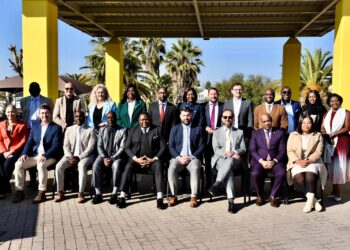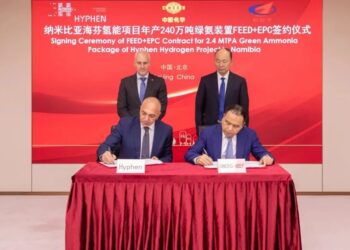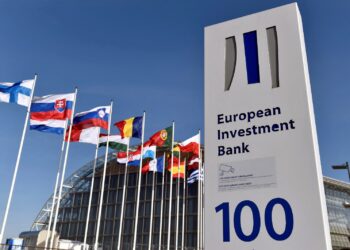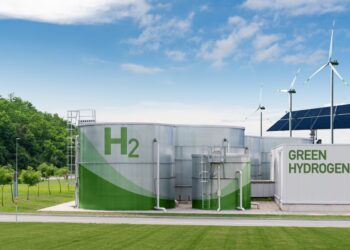
Namibia’s renewable energy sector, particularly green hydrogen, should leverage the existing anti-corruption mechanisms used in the extractive industry, according to the Institute for Public Policy Research (IPPR).
IPPR Executive Director, Graham Hopwood, emphasised the importance of the Extractive Industries Transparency Initiative (EITI), launched in 2003.
The EITI aims to combat issues of weak governance and widespread corruption by promoting greater transparency in the oil, gas and mining sectors.
“Renewable energy projects, including green hydrogen, should take heed of the lessons learned from anti-corruption efforts in the extractives sector,†Hopwood said.
He explained that the principles of the EITI Standard should be applied to green hydrogen and other renewable projects, which means publishing information related to contract transparency, beneficial ownership, production and export data, tax revenues, and CSR payments.
He said such reporting would be evaluated by multi-stakeholder oversight committees, including government, private sector, and civil society, to assess the veracity and appropriateness of the disclosures.
“Transgressions would lead to public warnings, suspensions, and ultimately, the halting of a project. Namibia’s green hydrogen projects must be perceived as being implemented responsibly,†he noted.
He further noted that the Swiss-based Green Hydrogen Organisation has developed a Green Hydrogen Standard, launched in 2022, to promote responsible practices in collaboration with various stakeholders.
Hopwood highlighted that the Standard requires companies to take a proactive approach to disclosures and sets expectations for reporting on licenses, approvals, and financial transactions.
“The Green Hydrogen Standard also calls for companies to disclose tax payments, subsidies, beneficial ownership, and community benefit arrangements. While it has garnered some industry support in Namibia, there are areas needing improvement, such as raising its visibility and ensuring comprehensive adoption,†he said.
Moving forward, he urged that it should serve as a benchmark for ensuring the legitimacy of green hydrogen projects through proper accreditation and certification.
Hopwood said companies and projects in Namibia should already be aligned with the Standard to ensure future compliance.
“By overlooking the corruption risks tied to green hydrogen, we set ourselves up for failure. Corruption isn’t a secondary concern; it poses a direct commercial risk, threatening the viability of both projects and businesses,†Hopwood cautioned.
The Director said looking at the program of the recent Green Hydrogen Summit held in Windhoek, there were plenty of discussions focusing on business models and green industrialization, but scant mention of governance and corruption challenges.
He said this lack of focus is especially concerning given the country’s recent experiences with corruption scandals, such as the Fishrot scandal and the collapse of the SME Bank.
“As with both those scandals, we live in denial until it’s too late. The money’s gone, and the corrupt have fled or are dodging culpability for as long as they can. There’s no reason to believe the green hydrogen sector is immune to similar risks,†he remarked.
This comes as currently, according to him Namibia’s green hydrogen projects face several risk factors, including a lack of transparency regarding key documents and agreements.
He added: “opaque processes concerning access to finance and land, inadequate community consultation, and concerns about the involvement of politically exposed persons in company structures and licensing arrangements”.











